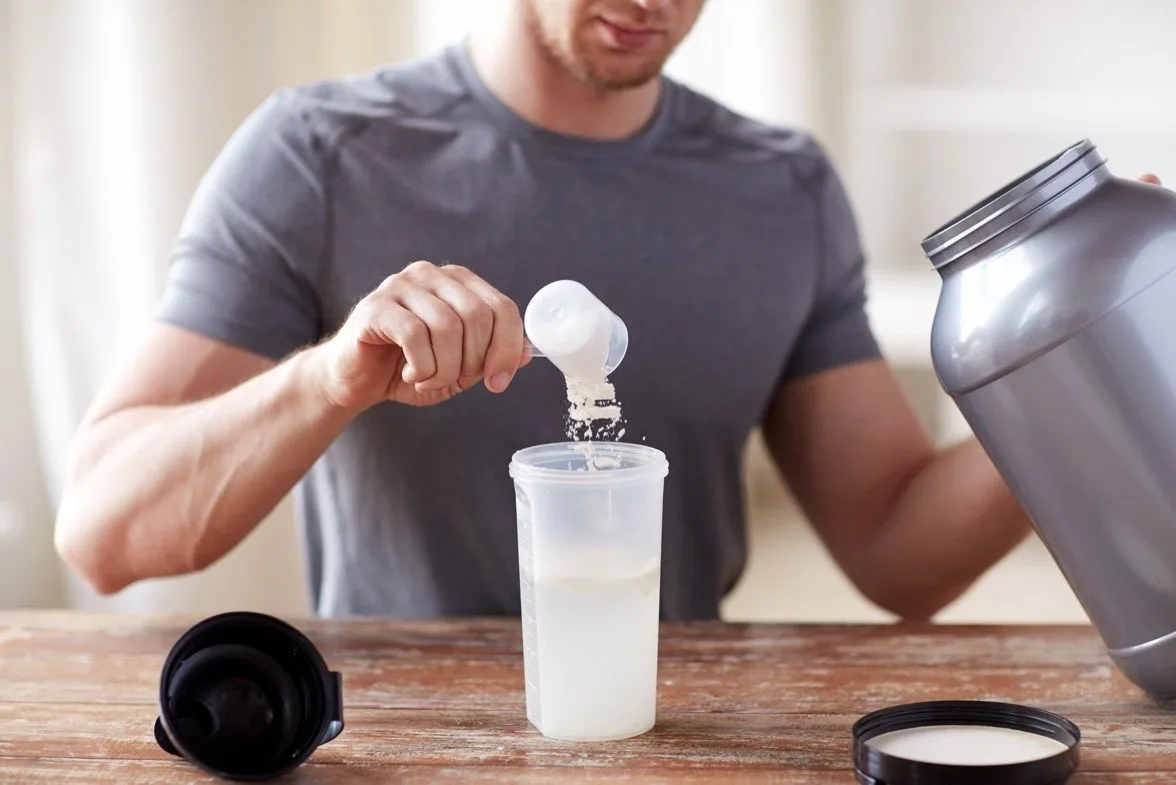With so many whey and other protein powders competing for the same target market, perfecting your protein powder formula is crucial. Staying a cut above the competition means having a unique edge, which is why knowing how enzymes and probiotics enhance your formulation gives you a clear advantage.
What Is Enzyme and Probiotic Supplementation?
Enzymes and probiotics offer many benefits for improving digestive health. Enzymes are natural proteins derived from animal, plant, or microbial sources that can help with the digestion of food. They can be taken with food to supplement the endogenous enzymes found naturally in the small intestine, stomach, mouth and pancreas. For example, proteases and peptidases are enzymes that aid in protein digestion. Amylase enzymes break down carbs, and lipase is an enzyme necessary for proper fat digestion. Probiotics, on the other hand, are living microorganisms that can help with digestion and also improve overall immune, gut and digestive health.
Better Macronutrient Digestion
Supplementing protein powder with digestive enzymes means consumers will be better able to break down macronutrients — which are protein, carbs and fat — say researchers who conducted a review published in 2016 in Current Drug Metabolism. Results from the study show that digestive enzyme supplementation appears to play a role in managing digestive disorders, such as cystic fibrosis and lactose intolerance. The main purpose of consuming protein powder is to obtain more of the valuable nutrients the protein contains. Supplementing protein powders with digestive enzymes increases the bioavailability of these nutrients that can be absorbed by the body.

Fewer Digestive Problems
Typically, protein powders contain more protein than the body can digest at one time. Not only is undigested food a waste of money and valuable nutrients, but it can also lead to some digestive problems for the consumer. Digestive problems can happen to anyone consuming protein powder, but they especially trouble people who don’t have sufficient levels of enzymes in their bodies. This may include people with cystic fibrosis, pancreatic cancer, chronic pancreatitis or lactose intolerance, says Harvard Health Publications.
Problems associated with digesting protein powder may include bloating, gas, heartburn, diarrhea, indigestion and general stomach discomfort. While digestive enzyme supplements aren’t a cure for these health conditions, people with digestive difficulty may benefit from enzymes in their protein powder drinks.*
Improvements in Lactose Intolerance
Whether or not your protein powder contains lactose, adding digestive enzymes — lactase in particular — helps people with lactose intolerance steer clear of unpleasant side effects like bloating, gas, diarrhea, abdominal cramps and stomach pain.
Adding enzymes to protein supplements expands your target market, as about 65 percent of the population doesn’t digest lactose efficiently.
Better Micronutrient Absorption
Another perk of adding enzymes to protein powder is better micronutrient absorption. We already know that enzymes aid in the breakdown of fat, protein and carbohydrates, but they also help the absorption of vitamins and minerals. This means consumers are better able to utilize nutrients present in protein powder supplements, giving them the most bang for their buck.

Boosted Immunity
A stronger immune system is just one of the many health benefits consumers can reap when probiotic supplements (in addition to digestive enzymes) are added to protein powder formulations. Consumers who take probiotics supplements are encouraged to consume doses of at least 1 billion CFUs (colony forming units). Smart manufacturers realize this is an important point to keep in mind when developing protein powder formations.
Reduced Disease Risks
You might be surprised to learn that probiotics also appear to lower heart and other chronic disease risks. A 2017 review published in Medicine found that probiotics decreased total cholesterol, low-density lipoprotein (LDL) cholesterol, triglyceride levels, blood pressure and blood glucose levels in patients with type 2 diabetes. The prospect of lowering chronic disease risk factors associated with regular probiotics use is just one more reason consumers are more than willing to buy probiotics-enriched supplements.*
Increased Revenue
The digestive enzyme supplementation market is booming, with global sales expected to reach $1.6 billion by the year 2025. That is a huge increase when you consider that in 2015, the global enzyme market was valued at about $795 million. Probiotic manufacturing also reaps revenue-related rewards, as probiotics are the third most commonly used natural supplement in the U.S.
Hectic schedules mean people rely more and more on packaged foods for convenience, but these foods are linked with digestion problems. Taking enzymes with problematic foods reduces side effects, which is why so many people are interested in regular digestive enzyme and probiotics supplementation.
Turning to Enzymes and Probiotics
Enhancing protein powder formations with enzymes and probiotics is an excellent way to ensure supplements sit well digestively with the majority of your target market. Doing so will give your company an advantage over the competition, as enzyme and probiotics supplements are in high demand.
*These statements have not been evaluated by the Food and Drug Administration. This product is not intended to diagnose, treat, cure, or prevent any disease.



![women [longevity live]](https://longevitylive.com/wp-content/uploads/2020/01/photo-of-women-walking-down-the-street-1116984-100x100.jpg)











One Comment